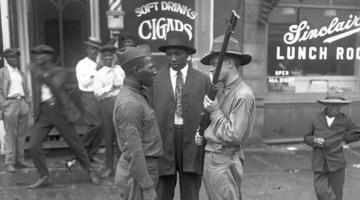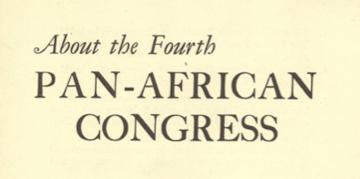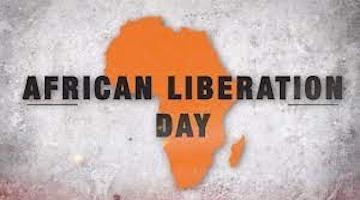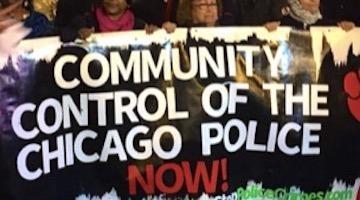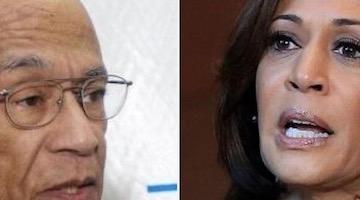The reactionary backlash after emancipation plummeted the nation into an extended state of racial tumult in the United States, contributing to an expanding political awareness of the global oppression of African people.
Originally published in Fighting Words.
“The unfriendly whites first drove the native American from his much-loved home. Then they stole our fathers from their peaceful and quiet dwellings, and brought them hither, and made bondmen and bondwomen of them and their little ones. They have obliged our brethren to labor; kept them in utter ignorance; nourished them in vice and raised them in degradation; and now that we have enriched their soil, and filled their coffers, they say that we are not capable of becoming like white men, and that we never can rise to respectability in this country.”
(Quote taken from a Maria W. Stewart address entitled African Rights and Liberty delivered at the African Masonic Hall in Boston, February 27, 1833)
These words uttered in a public address later published in the abolitionist Liberator newspaper edited by William Lloyd Garrison some three decades prior to the African intervention in the United States Civil War, typified the sentiment of Black people during the escalating struggle over the future of slavery.
Maria W. Stewart (1803-1879), born in the northeast state of Connecticut, is said to have been the first woman of any race to speak before audiences of all genders. A series of her speeches between 1831-33, which often utilized religious themes, also gave a materialist analysis of the social conditions of African Americans in the 19th century.
After the defeat of the Confederacy in April 1865, the post-Lincoln government led by President Andrew Johnson was faced with the policy question of how to deal with the 4.5 million people of African descent of which nearly 90 percent were enslaved. Since the national Colored Conventions held in the U.S. beginning in 1830, African American men and women were calling for full equality and land.
Nevertheless, the gallant legislative and organizational efforts of African Americans and their allies within the political superstructure in the House of Representative, Senate, along with state and local governing entities, could not reverse the failure to reconstruct the U.S. on bourgeois democratic principles. These historical developments would plunge the country into another century of racial turmoil. A series of judicial and legislative decisions set the African American people back to a period often described as the “Nadir”. Elected and appointed officials were driven from offices in Washington, state capitals and local governments. This level of institutional racism and repression was enforced by the Ku Klux Klan and other violent white supremacist organizations. Their policies of complete segregation were given legal cover by the state and federal courts which reversed the intent of the 13th, 14th and 15th Amendments to the Constitution along with the Civil Rights Acts passed during Reconstruction.
By the last decade of the 19th century, “lynch law” was prevalent throughout the South and other regions of the U.S. Thousands of African Americans were being driven from their farms, workplaces and communities. Others were subjected to highly exploitative conditions of employment and unlawful imprisonment which were just as horrendous if not worse than the antebellum period.
Interventions at the Columbian Exposition
Chicago was the scene for the 1893 Columbian Exposition (World Fair) where people from throughout the globe would visit the city to “celebrate” the 400th anniversary of the “discovery” of America by Christopher Columbus. The entire framework of the gathering was of course flawed since there were already peoples and nations in existence in the western hemisphere centuries prior to the arrival of Columbus in the Caribbean.
The fair immediately drew the ire of leading African Americans who decried the total neglect of the contributions of their people in the three decades since the legal end of enslavement. Fortunately, in response, the Haitian government appointed longtime public speaker, author and diplomat Frederick Douglass as co-commissioner of the exhibit for this independent African island-nation in the Caribbean.
After the protest by community organizations, the event administrators designated one day for African Americans. Anti-lynching campaigner and journalist, Ida B. Wells, a much-younger friend and collaborator of Douglass, urged him not to participate in this concession. Douglass argued that he would take advantage of any opportunity to advance the plight of African Americans.
At the Haitian exhibit, a document written by Douglass, Wells, I. Garland Penn and Ferdinand Barnett, the future husband of Wells, entitled “The Reason Why the Colored American Is Not in the World’s Columbian Exposition”, was broadly circulated in the thousands. The pamphlet, which extended over 80 pages, was a damning indictment against the U.S. political, economic and social system.
Wells in chapter IV of The Reason Why explained the purported origins of lynch law in the U.S. Citing the Virginia Lancet related to horse theft, Col. Wm. Lynch drafted the law in 1780, and it has been referred to since as the infliction of punishment by private and unauthorized persons.
According to Wells in the chapter:
“This law continues in force today in some of the oldest states of the Union where the courts of justice have long been established, whose laws are executed by white Americans. It flourishes most largely in the states which foster the convict lease system and is brought to bear mainly against the Negro. The first fifteen years of freedom he was murdered by masked mobs for trying to vote. Public opinion having made lynching for that cause unpopular a new reason is given to justify the murders of the past 15 years. The Negro was first charged with attempting to rule white people and hundreds were murdered on that pretended supposition. He is now charged with assaulting or attempting to assault white women. This charge, as false as it is foul, robs us of the sympathy of the world and is blasting the race’s good name.”
This intervention in 1893 coincided with the Chicago Congress on Africa and the Congress of Representative Women, both of which were addressed by African American women. The Congress on Africa occurred between August 14-21. The event was spread out across various churches within the African American community. Several press accounts praised the Congress on Africa as the most interesting and significant aspect of the Columbian Exposition.
According to one account of the deliberations:
“From August 14, 1893, to August 21, 1893 probably the largest number of African American participants in a world’s fair event assembled as part of the Congress on Africa, or as it was sometimes referred to, the Congress on African Ethnology, or the Congress on the Negro. Its eight-day length included a citywide Sunday session that entered the sanctuaries and pulpits of scores of churches, so thousands of interested church congregants listened to information on the status of the global African population. Identified fully for what it was, the Congress on Africa combined the intellectual with the ideological, religious, philosophical and scientific to formulate an agenda facilitating, in effect, a dualistic American African public policy on the status of continental and diasporan Africans. Frederick Douglass, Alexander Crummell, John Mercer Langston, T. Thomas Fortune and Bishop Henry McNeal Turner discussed the future of Africa with a smattering of continental Africans in attendance. For the American nation, this congress brought about a re-creation of the liberal arrangement between the races that originated in the abolitionist era. And, in its aftermath it represented a first dialogue in substantive interracial cooperation. Accordingly, well-educated blacks as well as the elite and middle-class whites presented invited papers. Africans from the continent and from the Diaspora filled the black ranks, many being the most notable persons in their fields of endeavor – intellectually-endowed, well-known and respected by members of both races. So, with enthusiasm, Caucasians from Europe, Africa and America collaborated in problem-solving based on African strengths rather than hand wringing over African deficiencies.”
Pan-African Awakenings 1897-1900
During the time period in which the Columbian Exposition was held, colonialism was expanding exponentially on the African continent. The Berlin West Africa Conference of 1884-85 convened by the leading European powers divided the continent among the imperialist states.
By 1897 in Britain, the African Association had been formed by activists such as South African Alice Kinloch and Trinidadian-born Barrister Henry Sylvester Williams. By 1900 the so-called First Pan-African Conference was convened in London which attracted delegations largely from African descendants in the European, U.S. and Caribbean Diaspora.
The event held between July 23-25 enjoyed the active participation of Dr. W.E.B. Du Bois, Bishop Alexander Walters, Ms. Anna Julia Cooper, among others. The African Association was merged into the Pan-African Association which, according to the conference report, was supposed to hold another gathering within two years in the U.S.
But such a gathering was not held until after the conclusion of World War I in 1919 in Paris to coincide with the discussions by the imperialist powers over the geopolitical dynamics stemming from the post-war situation. Nonetheless, the objective limitations of the organizers of the Pan-African Conference of 1900 in London did not halt the resistance to colonialism on the African continent and throughout the world.
Abayomi Azikiwe is the Editor of Pan-African News Wire.


